Institutions
CEA List
Paris, France
Open University of Catalonia
Barcelona, Spain
Core Members

Sébastien Gérard
Research Director (CEA)
Sébastien Gérard is director of research at CEA and he is the research program leader around the knowledge co-engineering platform of the CEA LIST (http://www-list.cea.fr) software and sytem engineering department. Working on research issues related to complex and critical system and software design for more than 20 years, his research interests include correct-by-construction specification and design of complex systems, model-based engineering of complex systems and visual modeling language engineering. He is the CEA representative at OMG for more than 15 years. In particular, he is the chair of the MARTE standardization task force. He is also leading the open-source project, Papyrus (www.eclipse.org/papyrus), the UML modeling tools of Eclipse. In 1995, he has a diploma in mechanics and aeronautics from the ENSMA high-school, in 2000 he obtained a PhD diploma in Computer Science from the Evry university and in 2013 he got his “habilitation à diriger des recherches” diploma in the domain of computer science from the Orsay univiersity. Sébastien is co-leading the Modelia initiative with Jordi Cabot.

Jordi Cabot
ICREA Research Professor (UOC)
Jordi Cabot is an ICREA Research Professor at Internet Interdisciplinary Institute, the Research center of the Open University of Catalonia (UOC) where he is leading the SOM Research Lab. Previously, he has been at École des Mines de Nantes, Inria, Technical University of Catalonia, University of Toronto and Politecnico di Milano.
His research falls into the broad area of systems and software engineering, especially promoting the rigorous use of software models and engineering principles in all software engineering tasks while keeping an eye on the most unpredictable element in any project: the people involved in it.

Robert Clarisó
Lecturer and Researcher (UOC)
Robert Clarisó is an associate professor at the Universitat Oberta de Catalunya (UOC), where he is a member of the Systems, Software and Models Lab (SOM Research). His research interests focus on formal methods in software engineering, model-driven engineering and tools for e-learning. Among other topics, he has worked on the verification of timed systems using abstract interpretation; and the analysis of structural models and model transformations using constraint programming. He holds a BSc in Computer Science from the Universitat Politècnica de Catalunya (UPC Barcelona-Tech), where he graduated at the top of his class. He also holds a PhD in Computer cience with honors, also from UPC (2005).
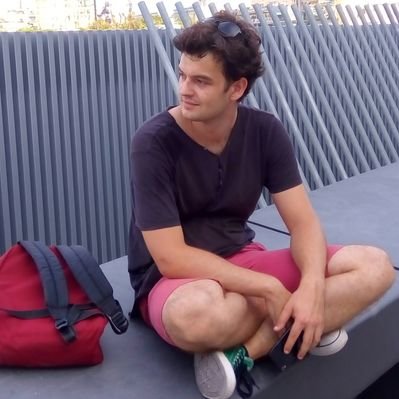
Gwendal Daniel
Postdoctoral Researcher (UOC)
Gwendal Daniel is a post-doctoral fellow in the SOM Research Lab at Internet Interdisciplinary Institute (IN3), a research center of the Universitat Oberta de Catalunya (UOC). He received his PhD degree in 2017 in the AtlanMod Team, at the Ecole des Mines de Nantes, France. He received the best thesis award from the GDR-GPL and the INFORSID association in 2018.
His research interests include Model Driven Engineering, Model Persistence, Query, and Transformation techniques, Domain Specific Languages, as well as applying model-based techniques for large-scale data applications.
Gwendal is currently funded by the MegaM@rt2 ECSEL-JU project.

Loli Burgueño
Postdoctoral Researcher (UOC)
Loli Burgueño is a postdoctoral researcher at the Open University of Catalonia in Barcelona, Spain. Her research interests focus on Model-Driven Engineering (MDE). She has worked on the field of testing model transformations, the distribution of very large models and the parallelization of model transformations, the formalization of Complex-Event-Processing languages and the modeling of uncertainty in software models for its use in the Industry 4.0. She is also working on the integration of Artificial Intelligence techniques into modeling tools and processes.
She graduated in Computer Science and Engineering from the University of Málaga in September 2011, earned her master’s degree in Software Engineering and Artificial Intelligence in September 2012 and graduated from her PhD with honors in April 2016.
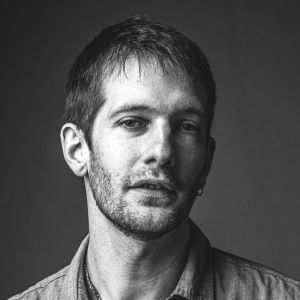
Edouard R. Batot
Postdoctoral Researcher (UOC)
Edouard R. Batot is a post-doctoral fellow working in the SOM Research Lab at the Internet Interdisciplinary Institute (IN3) of the Open University of Catalonia (UOC) in Barcelona. He received his PhD degree in 2018 in Université de Montréal, DIRO, under Pr. Houari Sahraoui supervision. His topic of research was regarding the use of example sets and their characterization for the learning of complex software artefacts.
Currently working on the conjunct use of AI and MDE for certification traceability purpose, his topics of interest span from software modelling engineering and quality to the social and political consequences of ubiquitous technologies.
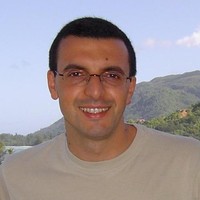
Chokri Mraidha
Head of Laboratory (CEA)
Chokri Mraidha is leading the Embedded and Autonomous Systems Design Laboratory of the CEA LIST institute in France. He got a master degree in distributed computing in 2001 and a PhD in Computer Science in 2005. He is involved in UML-based OMG standards for design of real systems like SysML and MARTE and the AUTOSAR standard for automotive. He is working in European and French research projects developing model-based approaches for design and verification of architectures for critical real-time systems for automotive, railway, aerospace, and robotics. His research and development interests include methods, design principles and smart tools for the engineering of efficient and trustworthy software for embedded and autonomous systems.
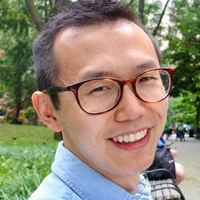
Shuai Li
Project Manager and Researcher (CEA)
Shuai Li is a project manager and researcher at the Embedded and Autonomous Systems Design Laboratory of the CEA LIST institute in France. He obtained a PhD in computer science, on the topic of schedulability analysis of TDMA software radio protocols, while working at THALES and Lab-STICC.
His current research is related to model-based software engineering for cyber-physical systems; more specifically real-time software architecture optimization, and design and deployment of smart behaviors. He is involved in several industrial and European collaborative R&D projects. In such projects he works on the development of autonomous vehicle support platforms, security/performance co-engineering, and model-based federation of neural networks in the cloud. He is also supervising several PhD students working on deep learning and software engineering.
Shuai is a committer of the open-source Eclipse Papyrus project. Papyrus is a UML modeler and MDE framework in which his contributions are implemented.
On his free time, Shuai is also a sessional lecturer at the French National Institute of Nuclear Sciences and Techniques (INSTN), part of the Paris-Saclay University. He teaches model-based system engineering with UML, SysML, and MARTE.
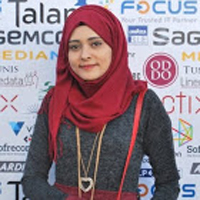
Takwa Kochbati
PhD student (CEA & UOC)
Takwa Kochbati is a PhD student at CEA LIST and SOM Research Lab. Her PhD research focuses on the cognification of model-driven engineering by using AI techniques. She graduated in computer science engineering from the National School of Computer Science (ENSI, Tunisia) in October 2017.

Maxime Savary-Leblanc
PhD Student (University of Lille & CEA)
Maxime Savary-Leblanc is a PhD student both in the CARBON team of the CRIStAL laboratory at the University of Lille and in the CEA LIST in Saclay.
His research activities focus on model-driven software engineering assisted by artificial intelligence with an emphasis on related human factors. He obtained a Master of Science in Digital System Design and Engineering from the University of Lille in July 2018 after spending two years working as a mobile application software engineer in an IT major company.
Associate Members

Bran Selic
President and Founder of Malina Software Corp.
Branislav (Bran) Selic, is President and Founder of Malina Software Corp., a Canadian company providing IT consulting and training services. He is also Director of Advanced Technology at Zeligsoft (2009) Limited in Canada and a Visiting Scientist at Simula Research Laboratories in Norway. On the academic front, he is currently adjunct professor at Monash University (Australia), a visiting researcher at the University of Sydney (Australia), and an honorary professor at Wuhan University (China). In the course of 45+ years of professional experience in industry, he specialized in software design and implementation in a variety of technical domains including robotics, financial systems, aerospace, telecommunications, subsea oil and gas, software development technologies and methods, modeling languages, and real-time and distributed operating systems. In 2007, Bran retired from IBM Canada, where he was an IBM Distinguished Engineer, responsible for setting the strategic direction for IBM Rational’s software development tools. Prior to that, as an entrepreneur, in 1992, he co-founded ObjecTime Limited, a successful hi-tech start-up focusing on advanced software development tools. (ObjecTime was acquired by US-based Rational Software in 1999, which was later acquired by IBM.) Bran has pioneered the use of model-based engineering methods in real-time and embedded applications and has led the definition of several international standards in that domain, including the widely used Unified Modeling Language (UML). In 2016, his contributions were recognized with a Career Award by the Steering Committee of the MODELS Conference in 2016.
He is the principal author of two technical books, editor of six others, and has over 100 publications in various technical journals and conferences. Bran is on the editorial board of two scientific journals. In the past, he was a general chair of several technical conferences and has participated in numerous conference programme committees. In addition, he is a frequent invited speaker at such events. Bran holds a Mag.Ing. degree in Systems Theory (1974) and a Dipl. Ing degree and Electrical Engineering (1972), both from the University of Belgrade in what was once Yugoslavia.
His interest in the Modelia initiative is motivated by the clear and as yet insufficiently explored potential behind AI-based computer automation in support of model-based engineering (MBE). Although MBE is predicated on greater exploitation of computer automation much still remains to be done in this domain, both in terms of theory and practical application.

Xavier Le Pallec
Assistant Professor
Xavier Le Pallec is Assistant Professor at the Department of Computer Science at Lille University (France) where he received his PhD in Computer Science in 2002. From 2003 to 2007 he was member of the Trigone Laboratory, working on the Technology Enhanced Learning area. Since 2007, he is researcher at the CRIStAL Laboratory. He was a Visiting Researcher at the University of Namur (Belgium) during 2012.
From 2002 to 2012, he explored how to apply Model Driven Engineering to different areas such as Computer Supported Collaborative Work, Technology Enhanced Learning and Multimodal User Interaction, as evidenced by his (50+) publications. Since 2012, he focused on human factors in modeling, with a particular interest on visual aspects. Regarding this topic, he has collaborated with different researchers (from Grenoble, Paris, Namur, Goteborg) and participated in the organization of related groups or events (for instance, national (French) group on Software Engineering / User Interaction, the Human Factors Modeling workshop at the MODELS conference, etc.).
His interest for the Modelia project is to identify how AI can help to software practitioners from a human factor point of view, i.e., the cognitive dimensions in which AI can be useful and/or the interaction mechanisms that are necessary to create or evolve it.
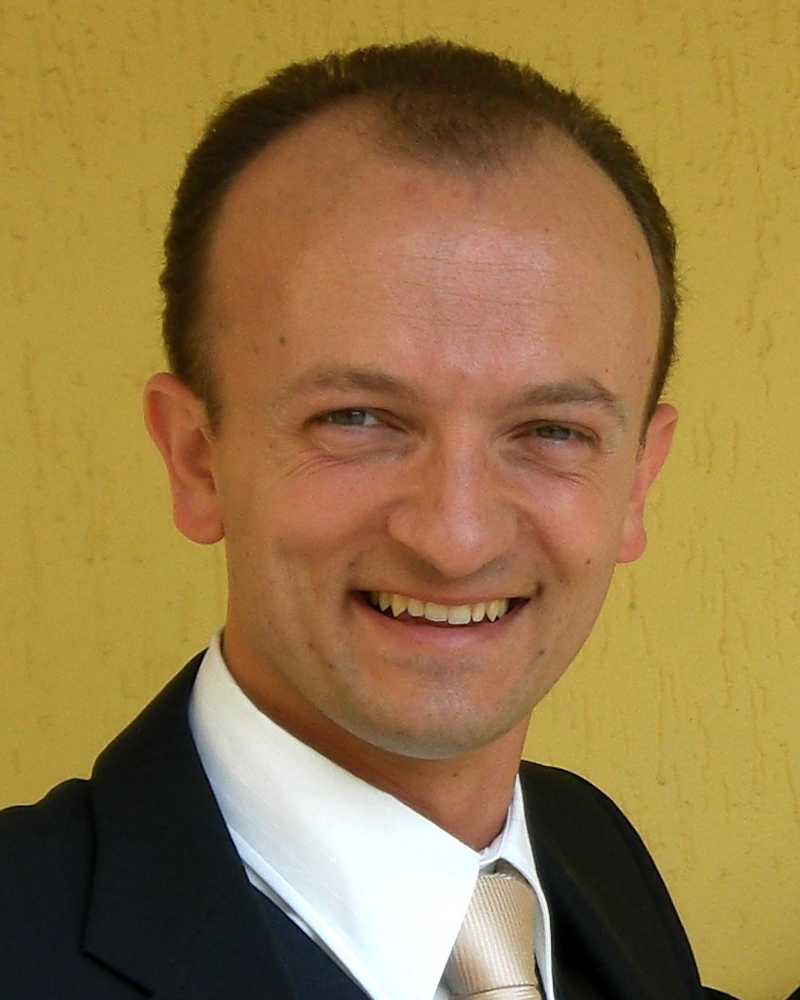
Marco Brambilla
Associate professor
Marco Brambilla is associate professor at Politecnico di Milano and leads the Data Science Lab at DEIB. He is active in research and innovation, both at industrial and academic level. His research interests include data science, software modeling languages and design patterns, crowdsourcing, social media monitoring, and big data analysis. His involvement in this project is mainly related to the application of data analysis and machine learning (descriptive and predictive) over software development processes, software artifact evaluation, and software/tool usage.
He has been visiting researcher at CISCO, San Josè, and University of California, San Diego. He has been visiting professor at Dauphine University, Paris.
He is co-founder of Fluxedo, focusing on social media analysis and Social engagement, and of WebRatio, devoted to software modeling tools for Web, mobile and business process based software applications. He is the author of various international books and research articles in journals and conferences, with over 200 papers. He was awarded various best paper prizes and gave keynotes and speeches at many conferences and organisations. He runs research projects on data science and industrial projects on data-driven innovation and big data.
He is the main author of the OMG standard IFML. He participated in several European and international research projects, editorial teams of scientific journals, and organization committees of conferences.
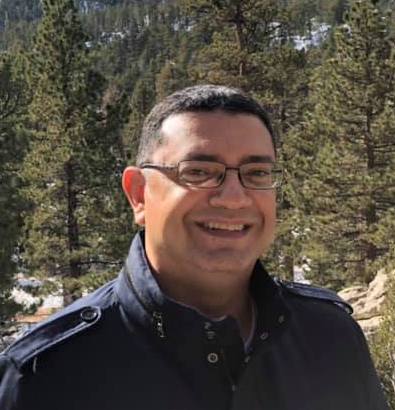
Maged Elaasar
Software Architect
Maged Elaasar is a software architect at NASA’s Jet Propulsion Laboratory at the California Institute of Technology, where he is leading the Integrated Model Centric Engineering (IMCE) R&D program, whose mission is to develop a rigorous Model Based Systems Engineering (MBSE) practice and infuse it in space projects. In this context, he is leading the project Open CAESAR (https://open-caesar.github.
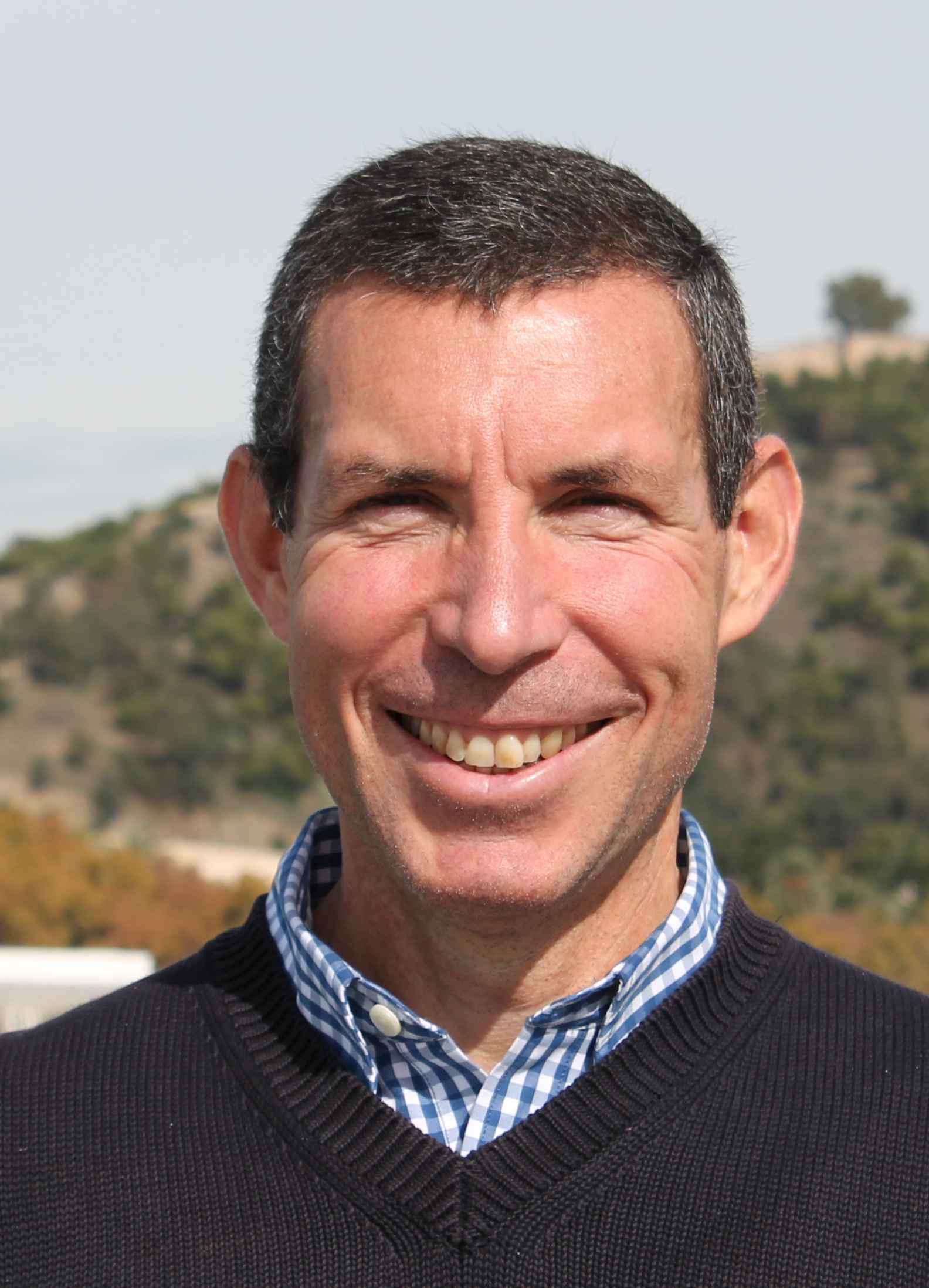
Antonio Vallecillo
Professor
Antonio Vallecillo Antonio Vallecillo Antonio Vallecillo is Full Professor of Software Engineering at the University of Málaga. His research interests include model-based software engineering (MBSE), open distributed processing (ODP) and software quality. He is involved in several standardization activities within AENOR, ISO, ITU-T, and the OMG, being co-editor of ISO/IEC 19793 (UML4ODP) and of the revised version of RM-ODP (ISO/IEC 10746-2/3). He has organized several international conferences, including ECOOP 2002, TOOLS 2010, MODELS 2013 and ECOOP 2017, has served as PC Chair for conferences such as TOOLS, ICMT, ECMFA, QoSA, and ICSOC, and is in the editorial board for the Sosym and JOT journals. He has been Vice-President of Postgraduate and Doctoral studies at the University of Málaga (2012-2016), and the President of the Spanish Society on Software Engineering (SISTEDES) between 2014 and 2018. Since 2017 he coordinates the Computer Science and Information Technologies (INF) area of the Spanish Research Agency (AEI).
He is currently working in incorporating flexibility to MBSE notations and tools so that they are able to more faithfully represent and reason about complex physical systems. AI can play a relevant role in this context, and therefore his interests in the Modelia initiative.

